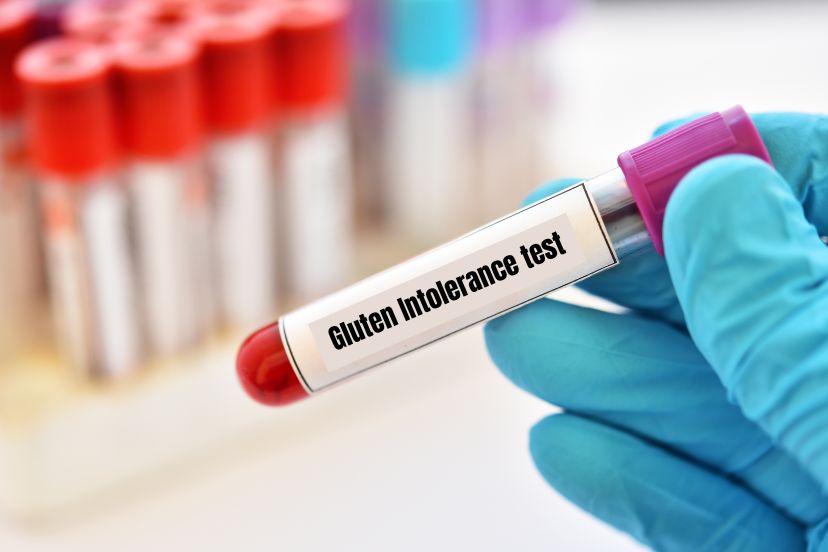Gluten Intolerance Test: Understanding and Managing Your Symptoms
Introduction
Living with gluten intolerance can be challenging. The symptoms can range from mild discomfort to severe gastrointestinal distress. If you suspect that you may have gluten intolerance, getting tested is an important step towards understanding your body’s response to gluten. In this comprehensive guide, we will explore everything you need to know about the gluten intolerance test, including how they work, the different types available, and what to expect during the testing process. So, let’s dive in and uncover the mysteries of gluten intolerance!
What is Gluten Intolerance?
Gluten intolerance, also known as gluten sensitivity or non-celiac gluten sensitivity, is a condition in which the body reacts negatively to the consumption of gluten. Gluten is a protein found in wheat, barley, rye, and other grains. When individuals with gluten intolerance consume gluten, it triggers an immune response that can lead to a wide range of symptoms, such as bloating, abdominal pain, diarrhea, fatigue, and even skin rashes.
Signs and Symptoms of Gluten Intolerance
Recognizing the signs and symptoms of gluten intolerance is crucial for identifying the condition and seeking proper diagnosis. Here are some common symptoms associated with gluten intolerance:
1. Digestive Issues:
Abdominal pain, bloating, gas, diarrhea, and constipation are frequently experienced by individuals with gluten intolerance.
2. Fatigue and Brain Fog:
Feeling tired and mentally sluggish after consuming gluten-containing foods is a common complaint among those with gluten intolerance.
3. Skin Problems:
Some people with gluten intolerance may develop skin issues like dermatitis herpetiformis, a blistering and itchy rash.
4. Joint and Muscle Pain:
Gluten intolerance can contribute to inflammation in the joints and muscles, leading to pain and discomfort.
5. Headaches:
Frequent headaches or migraines may be a sign of gluten intolerance in some individuals.
6. Mood Changes:
Irritability, depression, anxiety, and mood swings can occur as a result of gluten intolerance.
It’s important to note that these symptoms can vary from person to person, and not everyone will experience all of them. If you suspect gluten intolerance, it is recommended to consult with a healthcare professional for further evaluation and testing.
Types of Gluten Intolerance Tests
When it comes to diagnosing gluten intolerance, there are several types of tests available. These tests aim to determine whether an individual has an adverse reaction to gluten. Let’s take a closer look at the different types of gluten intolerance tests:
1. Blood Tests
Blood tests are commonly used to screen for gluten intolerance. They measure specific antibodies that indicate an immune response to gluten. The two primary blood tests for gluten intolerance are:
Anti-tissue Transglutaminase Antibody (tTG-IgA) Test:
This test measures the levels of antibodies called immunoglobulin A (IgA) that react with tissue transglutaminase, an enzyme that plays a role in the development of celiac disease. Elevated levels of tTG-IgA antibodies can suggest gluten intolerance.
Anti-endomysial Antibody (EMA) Test:
The EMA test checks for the presence of antibodies that target endomysium, which is a layer of connective tissue in the intestine. Positive EMA results indicate an immune reaction to gluten.
2. Genetic Tests
Genetic tests can help identify certain genetic markers associated with gluten-related conditions, such as celiac disease. These tests analyze the individual’s DNA to detect specific genes that are linked to an increased risk of developing gluten intolerance. However, it’s important to note that genetic tests alone cannot confirm or rule out gluten intolerance, as not everyone with the genes will develop the condition.
3. Gluten Challenge
In some cases, a gluten challenge may be recommended to evaluate the body’s response to gluten. During a gluten challenge, the individual is instructed to consume gluten-containing foods for a specified period while closely monitoring their symptoms. This can help determine if gluten is the cause of their symptoms.
4. Intestinal Biopsy
An intestinal biopsy involves taking a small tissue sample from the small intestine to assess any damage or inflammation caused by gluten. It is considered the gold standard for diagnosing celiac disease, a specific form of gluten intolerance. The procedure is typically performed via an endoscopy, where a thin tube with a camera is inserted through the mouth to collect the tissue sample.
Getting Ready for a Gluten Intolerance Test
Before undergoing a gluten intolerance test, it’s essential to prepare properly. Here are some important steps to follow:
1. Consult with a Healthcare Professional:
Schedule an appointment with your healthcare provider to discuss your symptoms and concerns. They will guide you in choosing the appropriate test and provide necessary instructions.
2. Maintain a Gluten-Containing Diet:
To ensure accurate test results, it’s crucial to consume gluten-containing foods leading up to the test. The duration of gluten consumption may vary depending on the test recommended by your healthcare provider. It’s essential to follow their instructions carefully.
3. Inform your Doctor of any Medications:
Let your doctor know about any medications or supplements you are taking, as certain medications can interfere with the test results.
4. Prepare Emotionally:
Waiting for test results can be an anxious time for many individuals. It’s important to take care of your mental well-being and engage in activities that help reduce stress during this waiting period.
Frequently Asked Questions about Gluten Intolerance Test
Here are some frequently asked questions about gluten intolerance tests, along with their answers:
1. How long does it take to get the results of a gluten intolerance test?
The time it takes to receive test results can vary depending on the specific test and the laboratory conducting the analysis. Typically, blood test results are available within a few days to a week, while genetic test results may take longer, ranging from a few weeks to a couple of months.
2. Can I eat gluten if I suspect gluten intolerance before getting tested?
If you suspect gluten intolerance and are planning to get tested, it is generally recommended to continue consuming gluten until testing is complete. Eliminating gluten from your diet before testing can affect the accuracy of the results.
3. What if my gluten intolerance test results are negative, but I stilltypes experience symptoms?
If your test results come back negative, but you continue to experience symptoms that you believe are related to gluten, it is advisable to consult with your healthcare provider. They may recommend additional testing or explore other potential causes for your symptoms.
4. Can I do a gluten intolerance test at home?
While there are some at-home test kits available for gluten intolerance, it’s important to note that these tests may not provide the same level of accuracy and reliability as tests conducted in a medical laboratory. It is always recommended to consult with a healthcare professional for proper testing and diagnosis.
5. Are there any risks associated with gluten intolerance tests?
Most gluten intolerance tests, such as blood tests, are generally safe and pose minimal risks. In rare cases, complications from an intestinal biopsy, such as bleeding or infection, may occur. However, these risks are extremely low, and healthcare professionals take appropriate measures to minimize any potential compliations.
6. Can children be tested for gluten intolerance?
Yes, children can be tested for gluten intolerance. If you suspect your child may have gluten intolerance, it is important to consult with their pediatrician or a healthcare professional who specializes in pediatric gastroenterology.
They will guide you through the testing process and recommend the most suitable tests for your child’s age and condition.
Conclusion
Understanding whether you have gluten intolerance is key to managing your symptoms and maintaining a healthy lifestyle. By undergoing a gluten intolerance test, you can gain valuable insights into your body’s reaction to gluten and make informed decisions about your diet and overall well-being. Remember to consult with a healthcare professional who can guide you through the testing process and provide personalized advice based on your specific needs. Take control of your health and embrace a gluten-free lifestyle if necessary.




